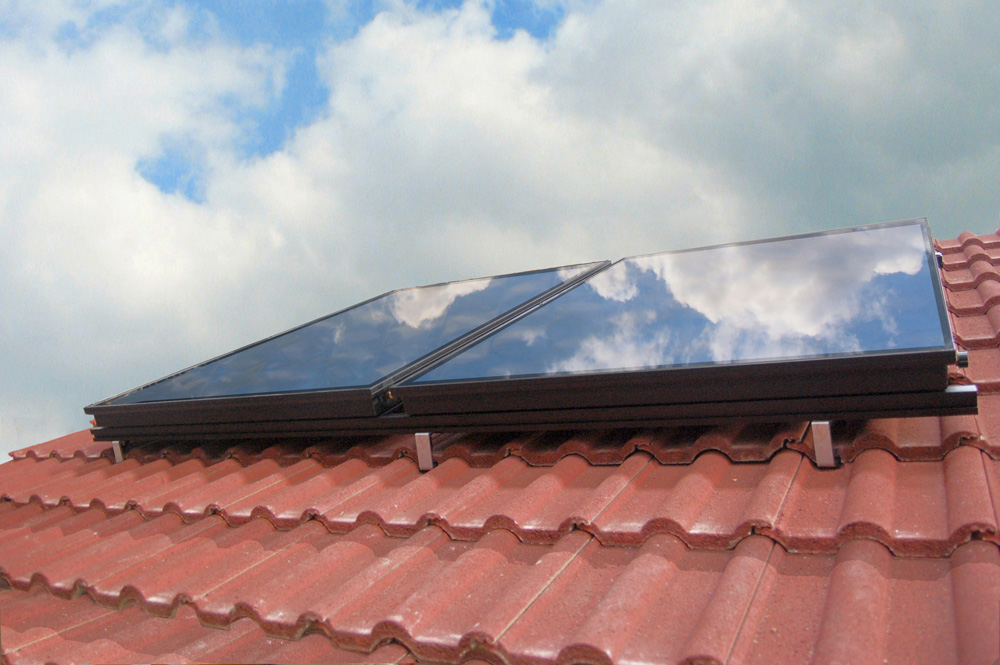
Bright Blue says RHI and FiT subsidies should be used to pay back the cost of a loan underwritten by government to pay for the cost of installing measures. Image: Viridian Solar.
The UK government should adopt an entirely new home improvement scheme which would see income from renewable energy subsidies used to pay back the cost of installation, according to a report from Conservative think tank Bright Blue.
‘Better homes: incentivising home energy improvements’ outlines a series of suggestions to the leading party on how to incentivise home improvements. Among them is a plan to integrate revenue households receive from the Renewable Heat Incentive (RHI) and the feed-in tariff (FiT) into a new home improvement scheme.
The revenue from these subsidies could be discounted from the repayments of a loan underwritten by government. Bright Blue argues that these loans could become the primary means for government to support their deployment in the domestic sector as subsidies are phased out.
The ‘Help to Improve’ loans would seek to utilise the pay-as-you save mechanism left following the collapse of the Green Deal and would offer much lower interest rates to the failed scheme. This would address one of the key causes of its failure, with the average interest rates for the Green Deal between 7-10% and deemed far too high for households to find it attractive.
The report has also suggested offering ‘Help to Improve’ ISAs similar to those used for the Help to Buy scheme. This would top up household savings and make it easier to fund measures, while the Green Deal’s Golden Rule would be scrapped.
This prohibited loan repayments from exceeding the estimated bill savings from the installation of the measures and according to Bright Blue was “an unnecessary consumer protection”.
The ‘Better homes’ report also recognises the need to attract installers back into the market following the decline sparked off by FiT cuts. The report suggests offering free training and reduced registration fees for small businesses and local tradespeople to help attract more individual installers into the supply chain.
It claims this would create local customer networks and higher trust levels which can be better utilised in home energy improvements.
In addition, it calls for the introduction of a new, single accreditation scheme for all installers of home energy improvements to replace the old accreditation frameworks for the Green Deal and Microgeneration Certification Scheme (MCS).
“This will help to restore consumer confidence in the quality of all home energy improvements and reduce the administrative burden on local tradespeople and small businesses that were previously deterred from getting Green Deal accreditation,” it states.
In addition, and to help installers offer a wider portfolio of products to homeowners, the report suggests widening the scope of energy improvement measures eligible for government funding such as loans to include smart appliance and battery storage.
Despite the widely acknowledged potential of battery storage devices, both industry and government have been more than hesitant in moving towards a subsidised model similar to the solar FiT.
In the outcome of its consultation on proposed cuts to tariff rates, the now defunct Department for Energy and Climate Change said: “Government recognises the potential system benefits of storage deployed in combination with intermittent renewables. However, it does not consider that FITs is the appropriate mechanism for providing support for energy storage.”

